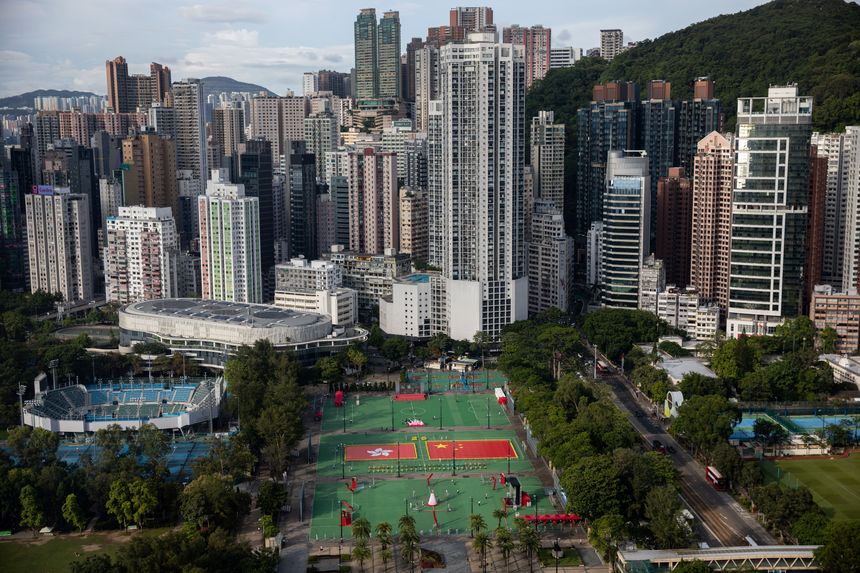The flags of China and Hong Kong in Victoria Park in Hong Kong, June 29.
Photo:
jerome favre/Shutterstock
When the U.K. handed Hong Kong over to China on July 1, 1997, the city was one of Asia’s freest and most open. Now it is a repressive police state. What went wrong?
For the first few years after the handover, Beijing behaved—at least on the surface—reasonably well. When I left in 2002, I was cautiously optimistic that the “one country, two systems” principle would persist. Only over the past decade did it begin to become apparent that Beijing’s iron grip was tightening. After the 2014 Umbrella Movement protests demanding universal suffrage, freedoms began to erode visibly. Protests in 2019 were met with shocking police brutality. The final straw was the imposition of the draconian National Security Law two years ago, which eradicated any remaining liberties and landed former legislators, journalists, trade unionists and civil-society activists in jail.
Almost all freedoms have been dismantled. Press freedom has been destroyed, academic freedom corroded and religious freedom threatened. Most pro-democracy activists are either in jail, in exile or keeping their heads down. Some, like media entrepreneur
Jimmy Lai
and former student activist
Joshua Wong,
could spend the rest of their lives in prison. The regime even arrested 90-year-old Catholic Cardinal
Joseph Zen.
John Lee,
Hong Kong’s new chief executive, was a policeman for 35 years before becoming security chief. He was handpicked by Beijing to do the regime’s bidding. All he knows is how to lock people up.
The international community—particularly the U.K., as a party to the treaty—should have responded to the warning signs sooner and more robustly. Had the free world called out the disqualifications of elected legislators and the first imprisonment of political activists in 2017 more…
Click Here to Read the Full Original Article at RSSOpinion…

